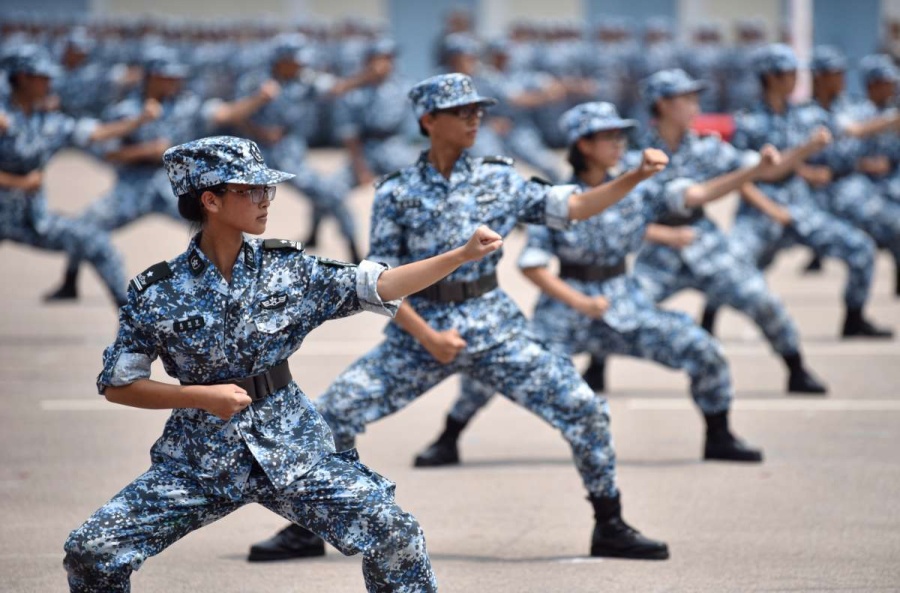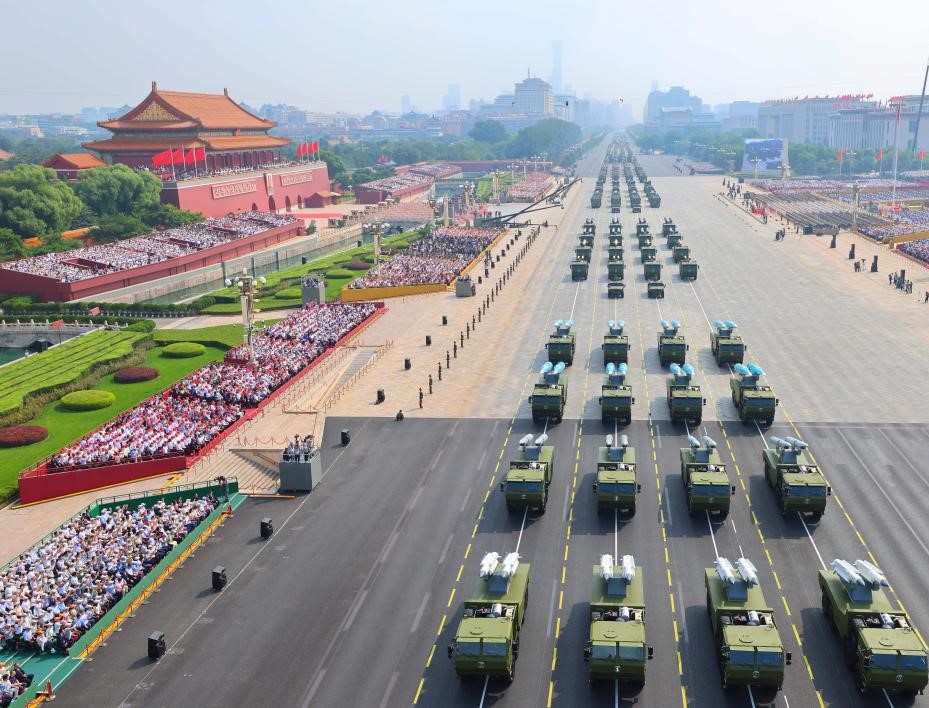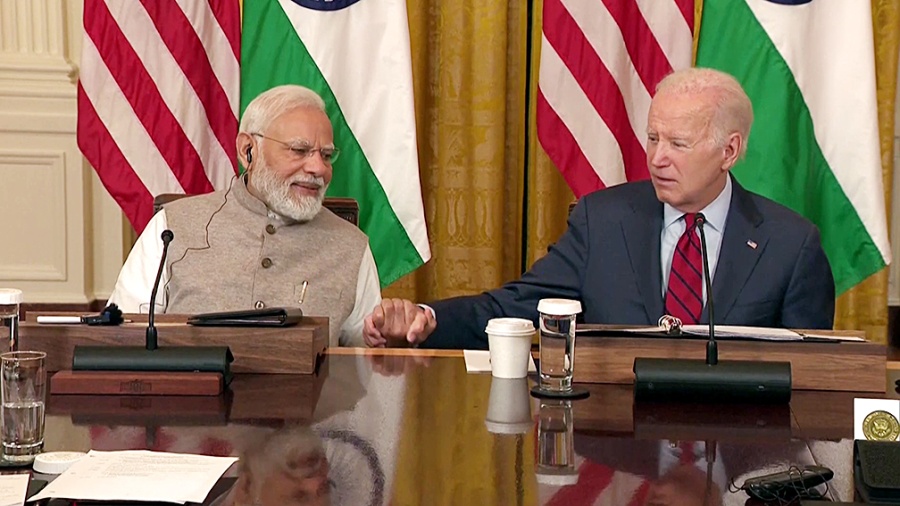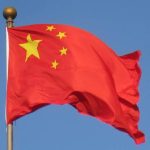China’s National People’s Congress is currently considering legal amendments to expand compulsory military training in universities and introduce ‘national defence education’ in high schools, a report by Rakesh Sharma
For an extended period, China enforced a one-child policy, which has now begun to create significant challenges within its society and economy. Consequently, the People’s Liberation Army of China is encountering substantial difficulties in its recruitment efforts. In reality, Chinese families are reluctant to send their sole offspring to the military. These only children, nurtured with immense care and affection, have become mentally, psychologically, and physically fragile. The Communist Party of China is struggling to find young recruits for the army. As a result, the CPC is planning to amend the law by introducing a new ordinance that mandates all students in the country to serve in the military.
The National People’s Congress of China is deliberating on legal amendments to broaden mandatory military training in universities and introduce ‘National Defence Education’ in high schools. According to the proposed changes, units of the People’s Liberation Army will be deployed in educational institutions nationwide, including colleges, universities, and high schools. This initiative aims to enhance a comprehensive program of sanctioned military education and physical training, preparing the youth for potential recruitment. This development was reported by the state news agency Xinhua on September 10.
China’s National People’s Congress is currently considering legal amendments to expand compulsory military training in universities and introduce ‘national defence education’ in high schools. The proposed changes would see units of the People’s Liberation Army stationed in educational institutions across the country, including colleges, universities, and high schools. This initiative is designed to bolster a nationwide program of approved military education and physical training, aimed at preparing young people for potential recruitment. This development was reported by the state news agency Xinhua on September 10.
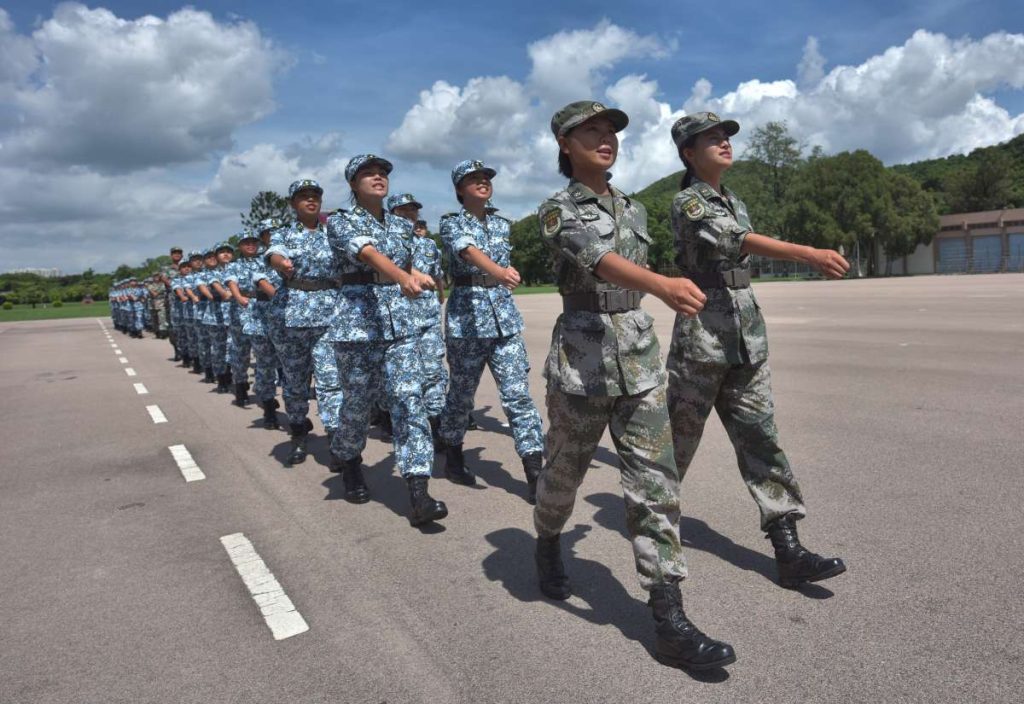
Departments of the People’s Armed Forces are already embedded at every level of government, as well as in schools, universities, and state-owned enterprises, to reinforce the Chinese Communist Party’s (CCP) control over local militias, safeguard weapons caches, and provide employment for veterans. After being relatively inconspicuous during the post-Mao economic boom, these departments are now actively mobilizing to establish militias within large state-owned companies and strengthen party leadership over local military operations.
Analysts suggest that if the proposed amendments are adopted, they will standardize these activities under the CCP’s military guidelines, aiming to generate more potential recruits in preparation for conflict. Although Chinese citizens are theoretically required to serve in the People’s Liberation Army, this mandate has not been enforced since the establishment of the People’s Republic of China in 1949.
According to Xinhua, the proposed amendments will require high schools to educate students about military service and foster a perception of it as ‘glorious.’ The plan also includes primary and junior high schools, urging them to integrate classroom instruction with extracurricular activities, as reported by China News Service.
The report states that college and high school students will be mandated to undergo basic military training, while junior high schools may also organize similar activities. As per the Legal Daily newspaper, the amendments aim to establish a comprehensive national military training program that links schools of all levels and types. Additionally, the amendments ensure funding for these activities, which will encompass military camps and ‘national defence education bases.
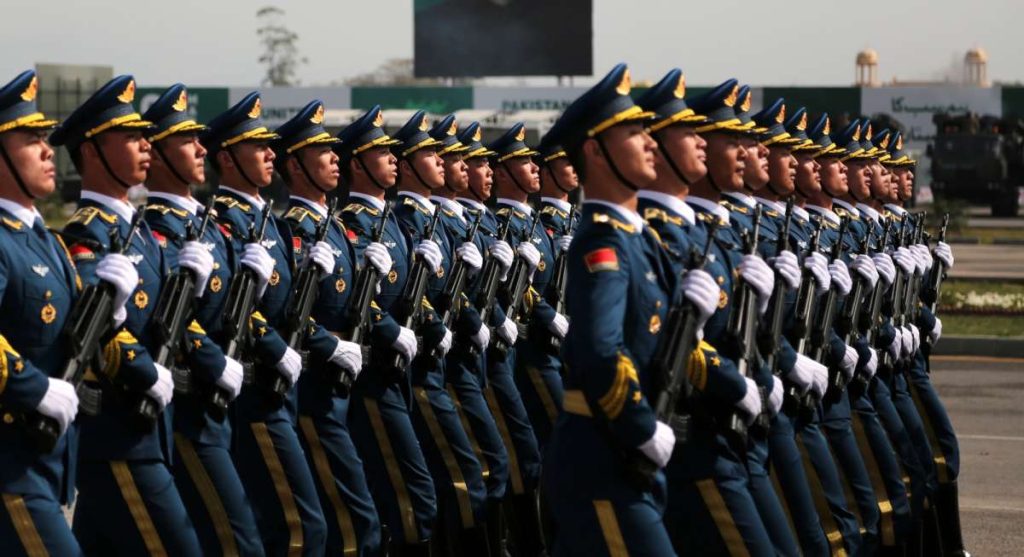
Shan-Son Kung, an associate researcher at Taiwan’s Institute for National Defence and Security Research, explained to RFA Mandarin that the goal is to instill national defence awareness and identify potential enemies at a younger age. He noted that basic military training is being introduced earlier in the education system to ensure widespread military knowledge. The objective is to enhance preparations for future conflicts, thereby increasing the number of conscripts available after the Mobilization Law is enacted. The National Defence Mobilization Law of the People’s Republic of China, which came into effect on July 1, 2010, aims to establish a comprehensive national defence mobilization framework.
Kung observed that the Chinese military relies heavily on recruitment, with a significant portion of its standing army being professional soldiers. He indicated that escalating tensions between China and the United States might lead China to bolster its economic and military mobilization efforts. This could involve increasing the frequency and scope of military exercises. Such measures may be seen as proactive steps to prepare for a potential large-scale conflict in the future.
China mandates that graduates in fields such as fluid mechanics, machinery, chemistry, missile technology, radar, science and engineering, and weapons science join the People’s Liberation Army. Taiwan-based Chinese dissident Gong Yujian highlighted that the Chinese Communist Party recognizes the challenge of recruiting young people due to the one-child policy’s impact on the age group. To address this, the CCP is intensifying pro-military propaganda targeting the youth.
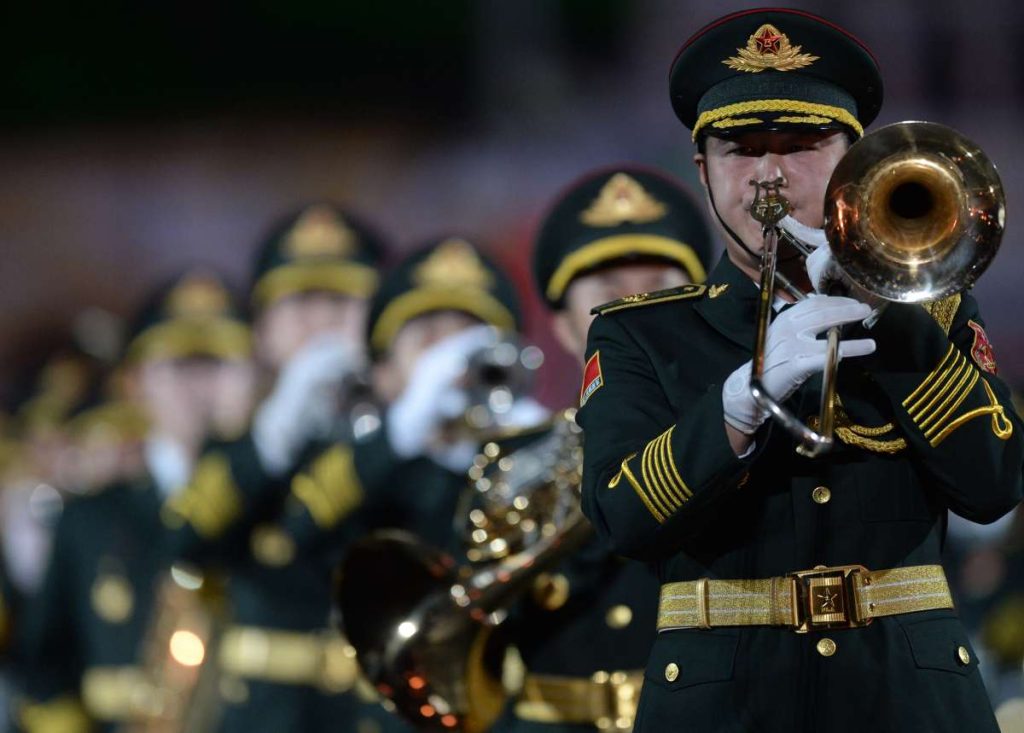
“They aim to in still loyalty to the party and patriotism in high school students, encouraging them to revere the People’s Liberation Army,” Gong explained. “It’s a form of educational indoctrination.” This strategy aims to boost recruitment figures by encouraging students to enlist after graduation. Gong recalled his own experiences with military training exercises during his high school years.
“When we were in school, we underwent a seven-day military training, but it was merely a formality,” he recalled. “Soldiers from the local armed police force came to our school to instruct us on marching and folding blankets.” He added, “We never even got to handle a firearm.” China’s consideration of mandatory military training for children and college students reflects its strategic move to bolster national defence readiness. By instilling military values and skills from a young age, the country aims to ensure a steady stream of recruits and enhance its overall military capabilities but in present scenario this herculean task seems to be impossible.
ALSO READ: China Eyes Dominance Beyond Earth


